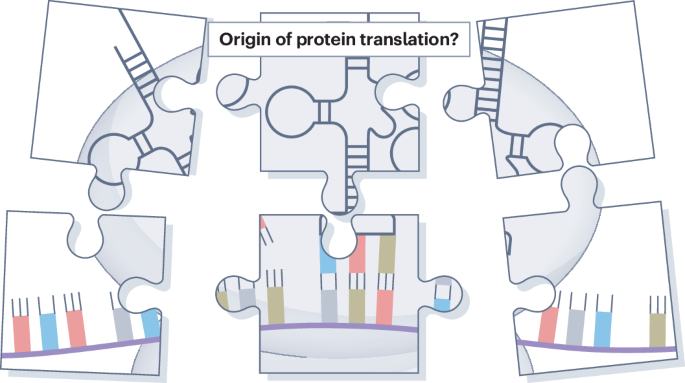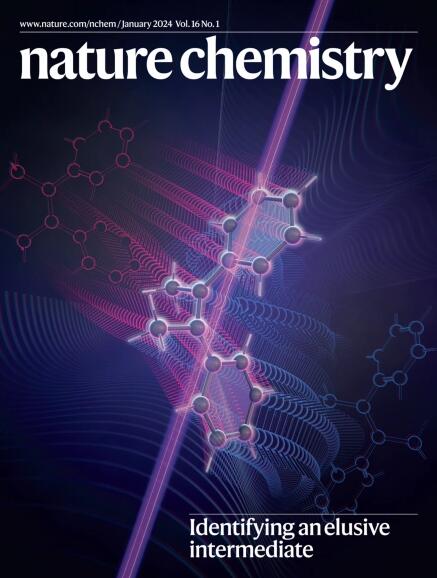Intellectual frameworks to understand complex biochemical systems at the origin of life
IF 20.2
1区 化学
Q1 CHEMISTRY, MULTIDISCIPLINARY
引用次数: 0
Abstract
Understanding the emergence of complex biochemical systems, such as protein translation, is a great challenge. Although synthetic approaches can provide insight into the potential early stages of life, they do not address the equally important question of why the complex systems of life would have evolved. In particular, the intricacies of the mechanisms governing the transfer of information from nucleic acid sequences to proteins make it difficult to imagine how coded protein synthesis could have emerged from a prebiotic soup. Here we discuss the use of intellectual frameworks in studying the emergence of life. We discuss how one such framework, namely the RNA world theory, has spurred research, and provide an overview of its limitations. We suggest that the emergence of coded protein synthesis could be broken into experimentally tractable problems by treating it as a molecular bricolage—a complex system integrating many different parts, each of which originally evolved for uses unrelated to its modern function—to promote a concrete understanding of its origin. It has been challenging to rationalize the emergence of complex biochemical systems because many parts with different functions needed to come together. This Perspective proposes a molecular bricolage—an evolutionary tinkering involving parts that initially evolved for unrelated functions—to provide an intellectual framework to study the origin of protein translation.


理解生命起源时复杂生化系统的知识框架
理解复杂生化系统的出现,如蛋白质翻译,是一个巨大的挑战。尽管综合方法可以让我们深入了解生命的潜在早期阶段,但它们并没有解决同样重要的问题,即复杂的生命系统为什么会进化。特别是,控制信息从核酸序列转移到蛋白质的复杂机制使得很难想象编码蛋白质合成是如何从益生元汤中出现的。在这里,我们讨论在研究生命的出现中使用智力框架。我们讨论了一个这样的框架,即RNA世界理论,是如何推动研究的,并概述了它的局限性。我们认为编码蛋白质合成的出现可以被分解成实验上易于处理的问题,通过将其视为一个分子拼凑物——一个由许多不同部分组成的复杂系统,每个部分最初都是为了与其现代功能无关的用途而进化的——来促进对其起源的具体理解。
本文章由计算机程序翻译,如有差异,请以英文原文为准。
求助全文
约1分钟内获得全文
求助全文
来源期刊

Nature chemistry
化学-化学综合
CiteScore
29.60
自引率
1.40%
发文量
226
审稿时长
1.7 months
期刊介绍:
Nature Chemistry is a monthly journal that publishes groundbreaking and significant research in all areas of chemistry. It covers traditional subjects such as analytical, inorganic, organic, and physical chemistry, as well as a wide range of other topics including catalysis, computational and theoretical chemistry, and environmental chemistry.
The journal also features interdisciplinary research at the interface of chemistry with biology, materials science, nanotechnology, and physics. Manuscripts detailing such multidisciplinary work are encouraged, as long as the central theme pertains to chemistry.
Aside from primary research, Nature Chemistry publishes review articles, news and views, research highlights from other journals, commentaries, book reviews, correspondence, and analysis of the broader chemical landscape. It also addresses crucial issues related to education, funding, policy, intellectual property, and the societal impact of chemistry.
Nature Chemistry is dedicated to ensuring the highest standards of original research through a fair and rigorous review process. It offers authors maximum visibility for their papers, access to a broad readership, exceptional copy editing and production standards, rapid publication, and independence from academic societies and other vested interests.
Overall, Nature Chemistry aims to be the authoritative voice of the global chemical community.
 求助内容:
求助内容: 应助结果提醒方式:
应助结果提醒方式:


